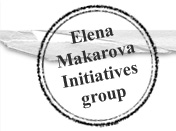
Erich Lichtblau-Leskly (1911 – 2004) |
 |
|
|---|
|
Exhibition at Beit Lochamei HaGetaot (Ghetto Fighters’ House Museum), Israel (2011-2012)
The key idea of the project is cultural and moral resistance of the Jewish people in extreme conditions, in particular, art as one of the strongest survival tools in the Shoa. The cartoons made by Erich Lichtblau-Leskly in 1942 – 1945 constitute an impressive satirical chronicle of life in the ghetto. In his drawings, named by himself ‘tragicomic,’ one can find different scenes and episodes from everyday ghetto life. His cartoons are undoubtedly a unique and important testimony produced by a gifted, perceptive and socially engaged person. Biographical Data June 6, 1911 – Born in Hrušov/Hruschau, Frýdek district (Moravsk á Ostrava), mother Sidonie Lichtblau, née Storch, father Josef Lichtblau 1918 – 1920 – Studied in Hrušov German school 1920 – 18.11 – Josef Lichtblau died; family moved to Moravsk á Ostrava 1920 – 1922 – Erich studied in Ostrava Jewish school 1922 – 1925 – Erich studied in Ostrava German gymnasium 1920 – 1925 – Became member of Zionist organizations Thelet Lavan and Maccabi, travelled to Poland and met Hashomer Hatzair members; planned to go to Palestine to take part in the Maccabiah Games; dreamed about immigration to Palestine. 1925 – 1928 – Studied and worked as apprentice/assistant at engineer Spitzer’s electrical appliances shop and Jakub Schanzer’s shop Mode Kurzwaren 1929 – 1936 – Worked as a window display designer at Rix Shopping Center in Ostrava 1930 – Studied at Hamburg Decoration School 1.10.1932 – 28.3.1934 – Served in Czechoslovak Army 2.2.1935 – Met Else Silbiger, born 26.7.1913 in Zebracz, Poland 30.5.1937 – Married Else Silbiger 1937 – 1939 – Worked as a designer at Julius Huppert’s shop in Ostrava 1939, spring – After Nazi invasion 15.3.1939, the Lichtblau couple escaped from Ostrava to Prague, where they joined Hechalutz ( Prague branch), believing that it would help them to leave the Protectorate for Palestine 1939 – 1.1.1940 – Worked as a laborer in engineer O. Holzner’s building construction company 1940 – 1941 – Worked as a laborer at the Hachshara – Zionist agricultural training farm, in the village of Dobešice near Písek in southern Bohemia 26.11.1942 – Deported with his wife from Klatovy to Theresienstadt (Terezín). Worked as a laborer in Bauhof (Building Yard), and in free time drew cartoons. 26.8.1944 – Transported to Wulkow, Germany (also called Barackenbau Arbeitskommando Zossen) with about 200 other prisoners to build shelters for the SS. 10.2.1945 – Returned to Terezín 30.5.1945 – Liberated, moved to Prague, changed his surname to Leskly 1.8.1945 – Got papers of Czechoslovak repatriation office, moved to Písek 1945 – 1946 – Made puppets and wooden toys for the Zelinka toy company 1946 – Moved to Teplice, worked as a designer in a department store JEPA 28.8.1949 – Immigrated to Israel with Elsa and their two children via transit camp in Bari, Italy, stayed a while in kibbutz Beit Zera 1949 – 1970 – Lived in Herzliya, Raanana, Givataim, worked as a house painter, later as a window display designer of the Tel Aviv Dizengof Shopping Center 1976 – First personal exhibition at the Beit Theresienstadt museum, kibbutz Givat Chayim Ihud 1980s – Reproduced the Terezin cartoons October 2, 2004 – died at the age of 93 in Tel Aviv 1984, 2010 – Personal exhibitions in Los Angeles Museum of the Holocaust 2011 – 2012 – Exhibition Closest to the Truth: Terezin Cartoonist Erich Lichtblau-Leskly at Ghetto Fighters’ House Memorial, Israel. |
|---|
| HOME I PROJECTS I FILMS I EXHIBITIONS I CONFERENCES, LECTURES I BIBLIOGRAPHY | |
|---|---|
| 2012 © Elena & Sergei Makarov | |